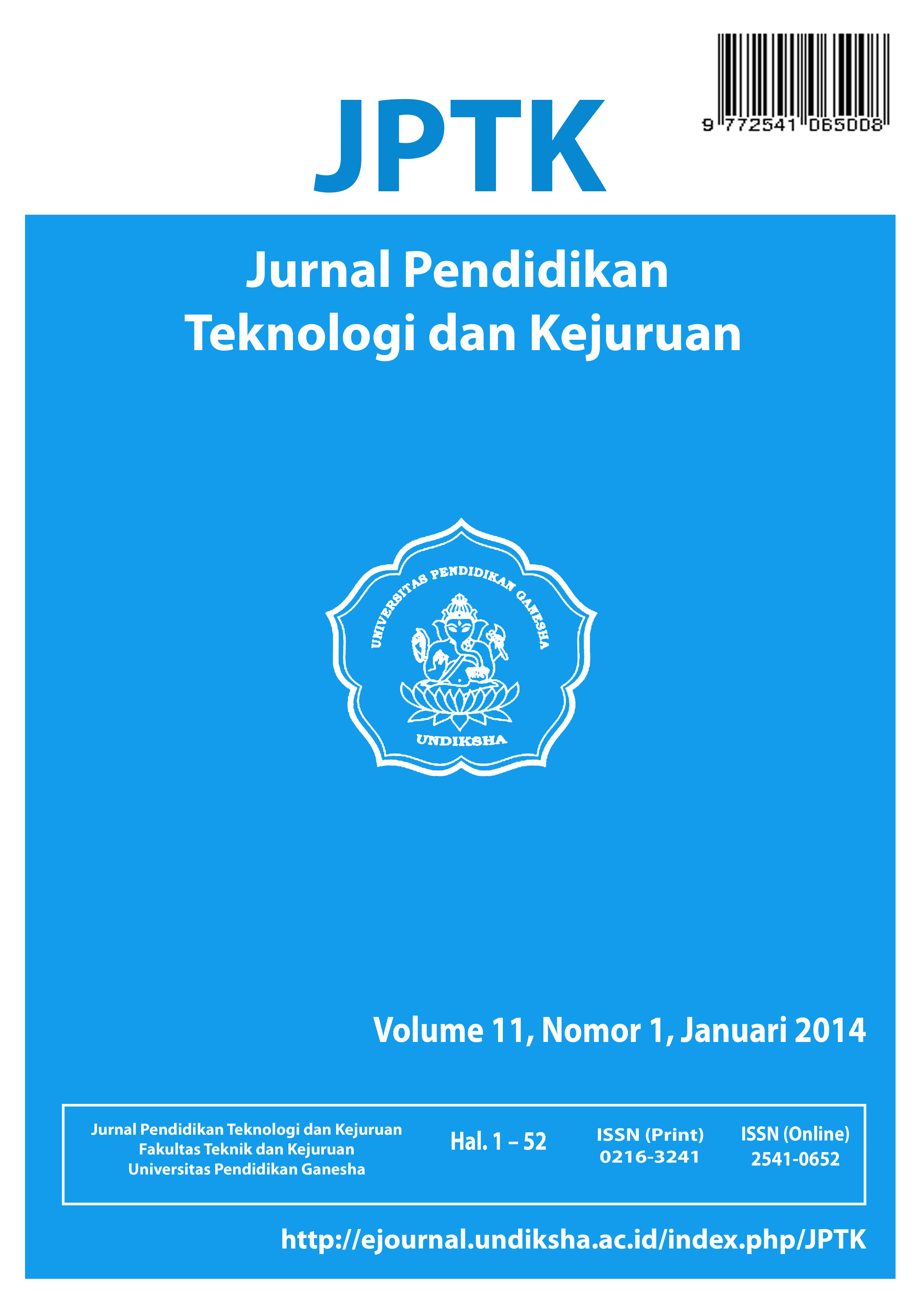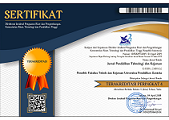PENGEMBANGAN APLIKASI TEXT TO SPEECH DALAM PEMBUATAN KAMUS UNTUK TUNANETRA
DOI:
https://doi.org/10.23887/jptk-undiksha.v11i1.4076Abstract
Nowadays, understanding and mastery of English language is very important foreveryone, not least for those who have limitations, such as people with visual impairment. Generally, people learn English, by using dictionary. But for people with visual
impairment, are not allowed to use the dictionary, just like a normal person in general.
They require specialized dictionaries, for example dictionaries that use Braille format. The using of dictionaries in Braille format even this could not be done optimally, because
to find the translation of a word, they must find the word manually, such as by reading with your finger.
By the advancement of science and technology, especially in the field of
computerization, dictionary application media was made to help people with visual impairment in performing the translation of a word by using the senses of hearing. In
making this application, the hardware, which used is a desktop or laptop computer
completed with the speakers, while its software consists of modules Borland Delphi and TTS (Text To Speech). The application of the dictionary that created tailored to the characteristics of people with visual impairment, such as on interface design created the shortcuts or special keys on the keyboard to perform a particular function. Input given to
the system, namely in the form of text, followed by the TTS module will be converted to text utterance.
This dictionary application is expected to provide facilities for persons with visual
impairment in learning English language, without need high intensity to do the translation of a word, so that the productivity of learning, both at school and at home can be
improved continously.
Downloads
Published
2014-02-01
Issue
Section
JPTK
License
Authors who publish with the JPTK agree to the following terms:- Authors retain copyright and grant the journal the right of first publication with the work simultaneously licensed under a Creative Commons Attribution License (CC BY-SA 4.0) that allows others to share the work with an acknowledgment of the work's authorship and initial publication in this journal
- Authors are able to enter into separate, additional contractual arrangements for the non-exclusive distribution of the journal's published version of the work (e.g., post it to an institutional repository or publish it in a book), with an acknowledgment of its initial publication in this journal.
- Authors are permitted and encouraged to post their work online (e.g., in institutional repositories or on their website) prior to and during the submission process, as it can lead to productive exchanges, as well as earlier and greater citation of published work. (See The Effect of Open Access)












